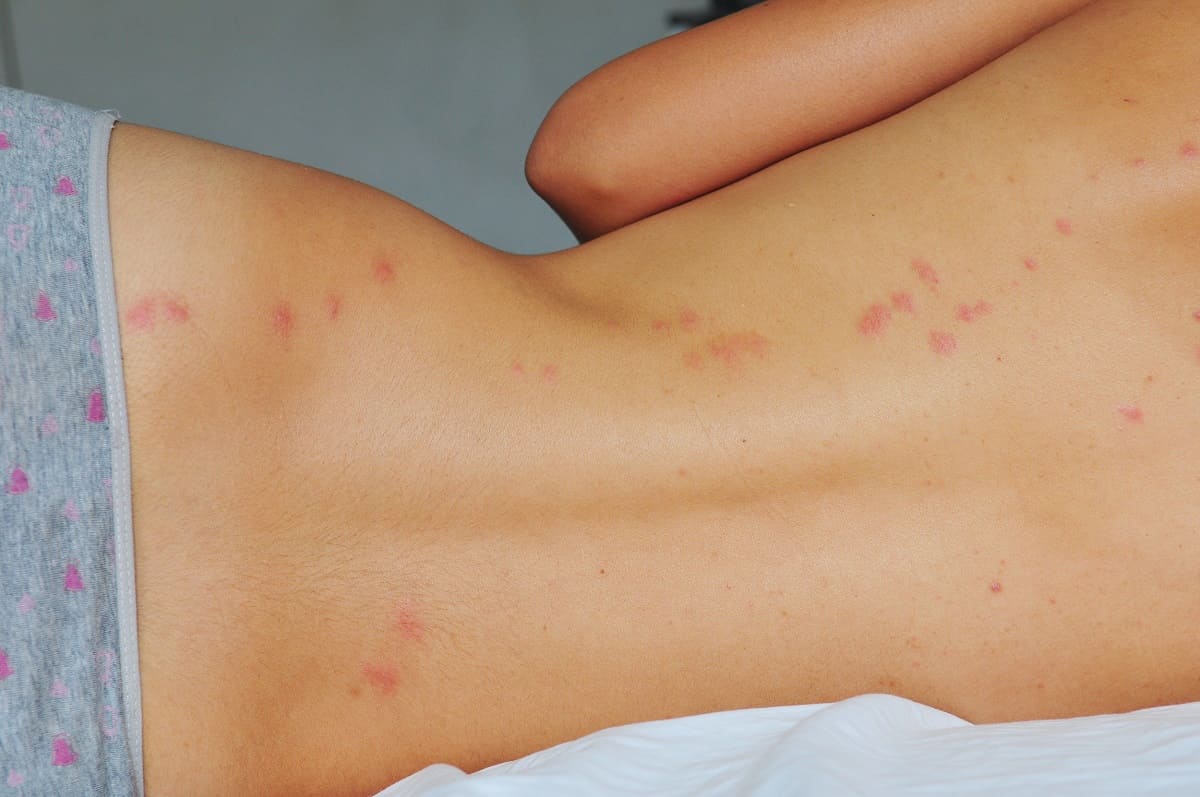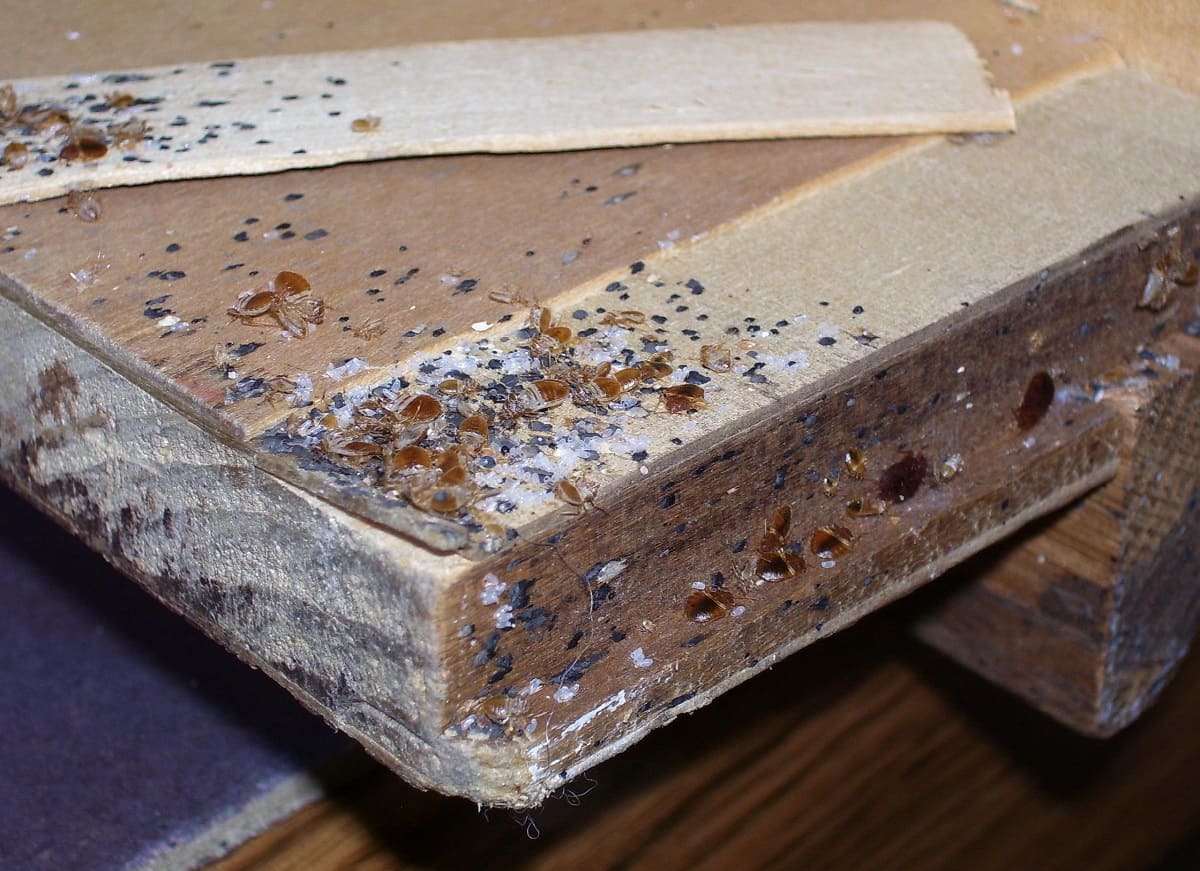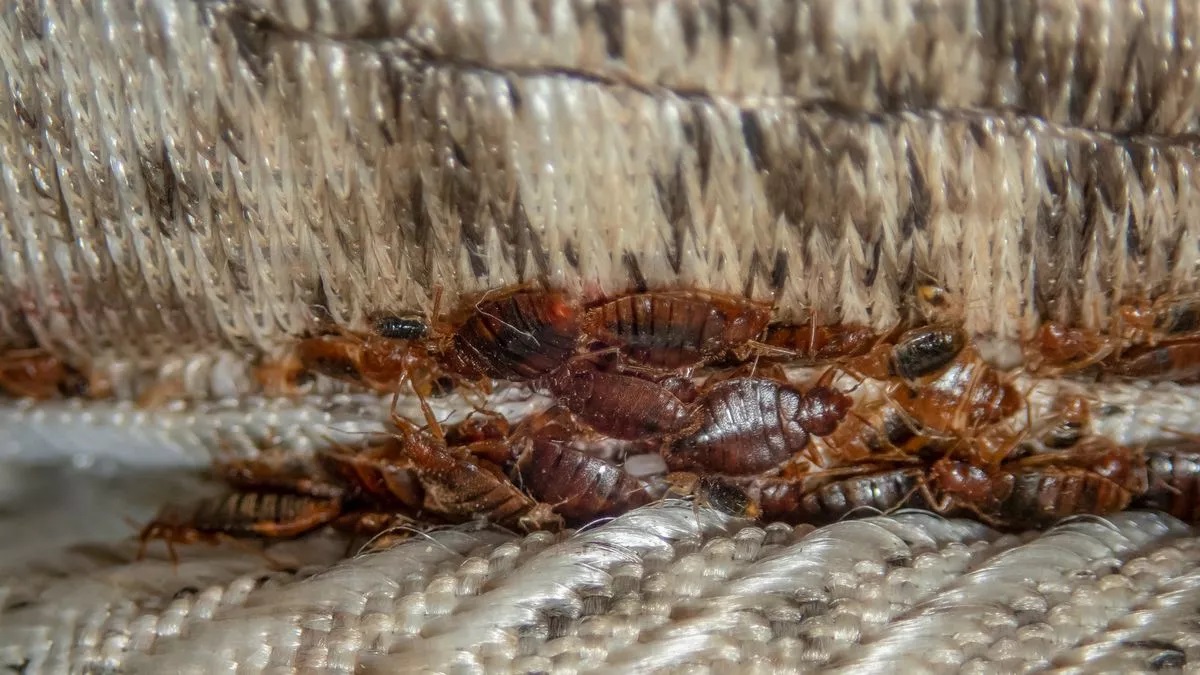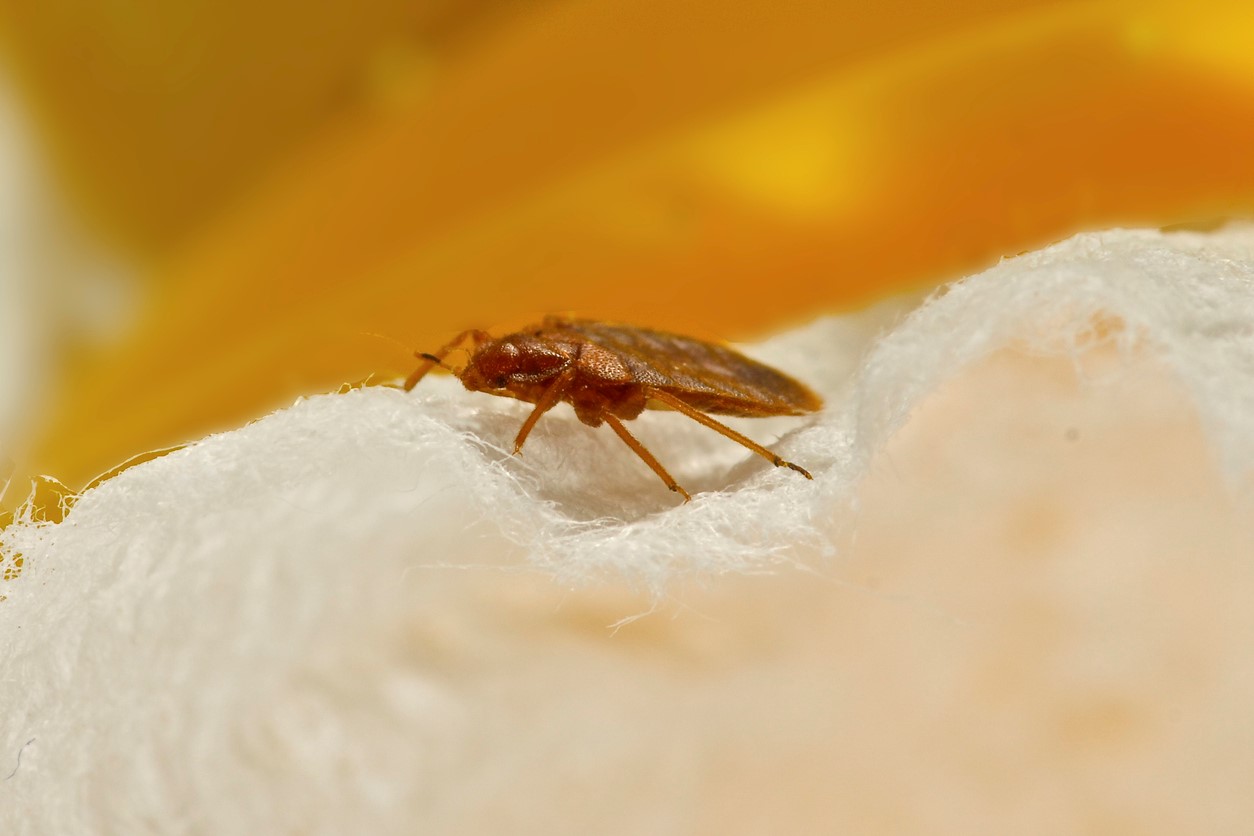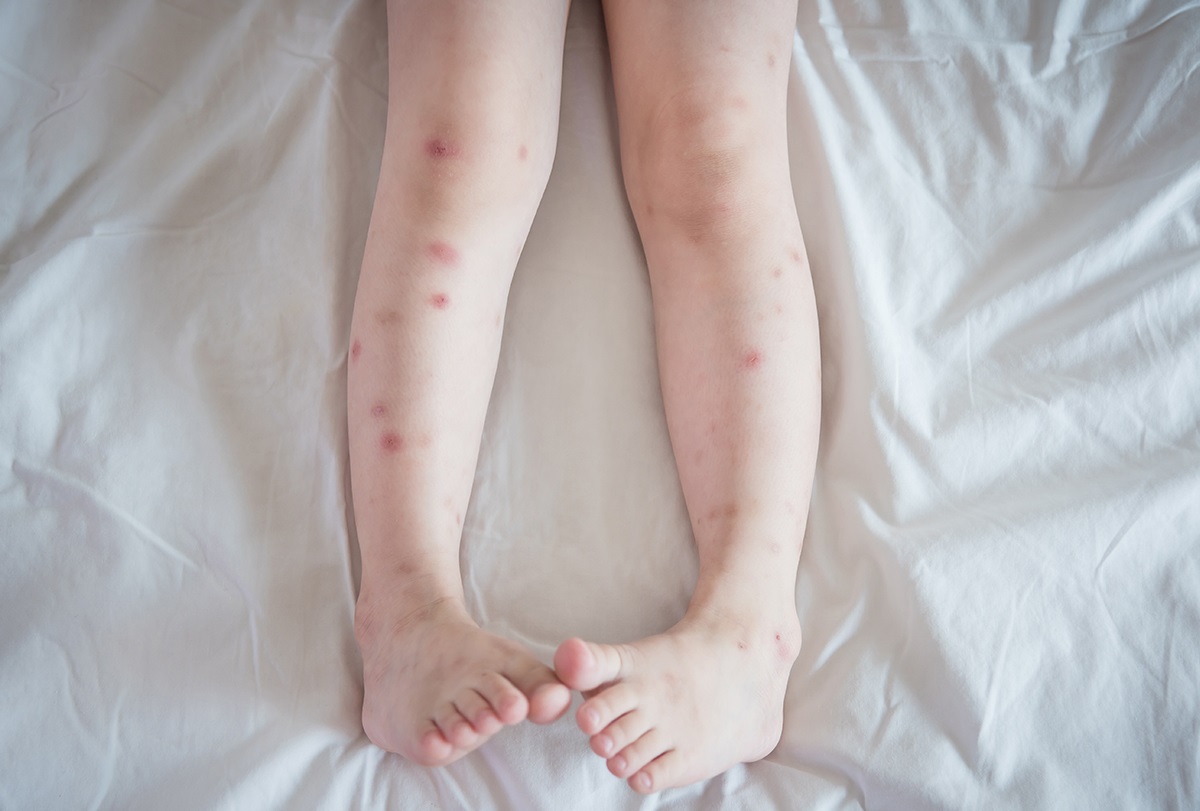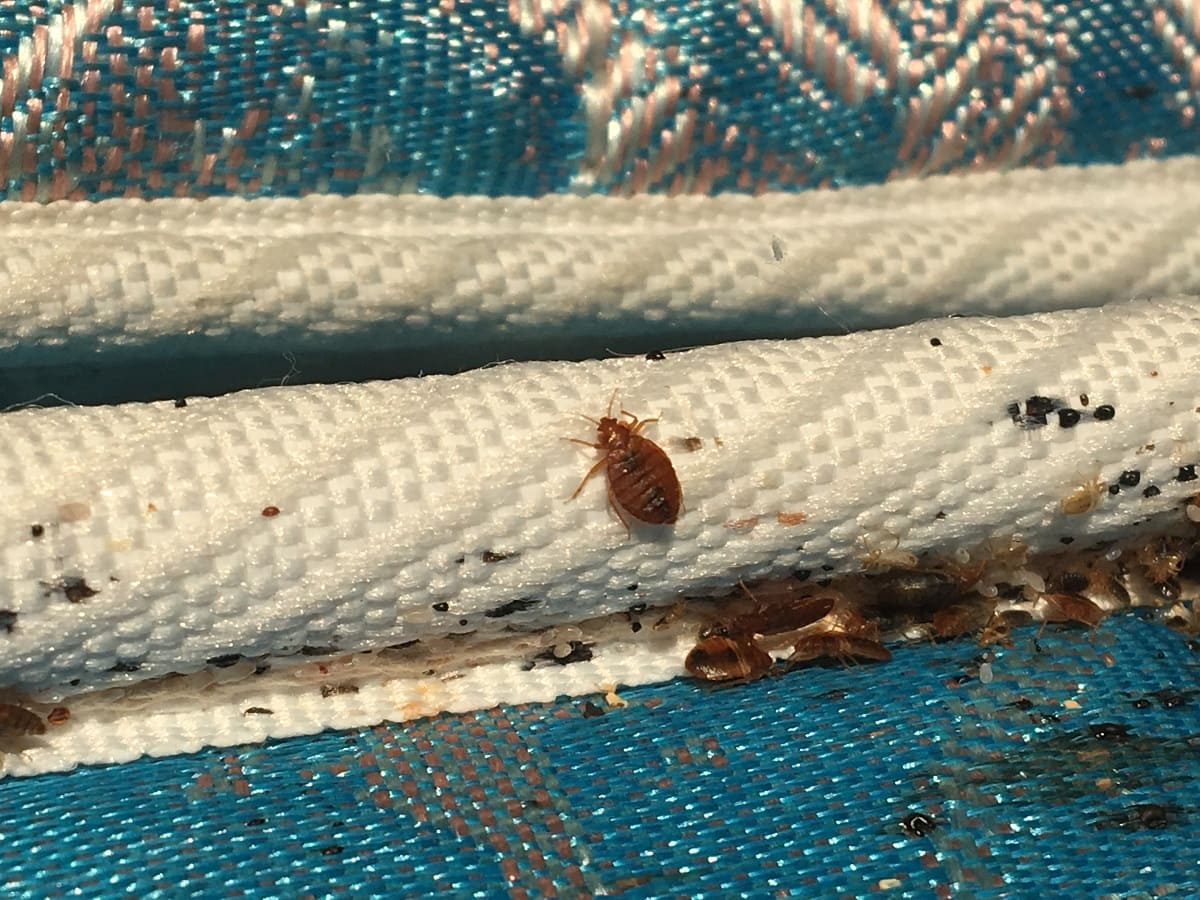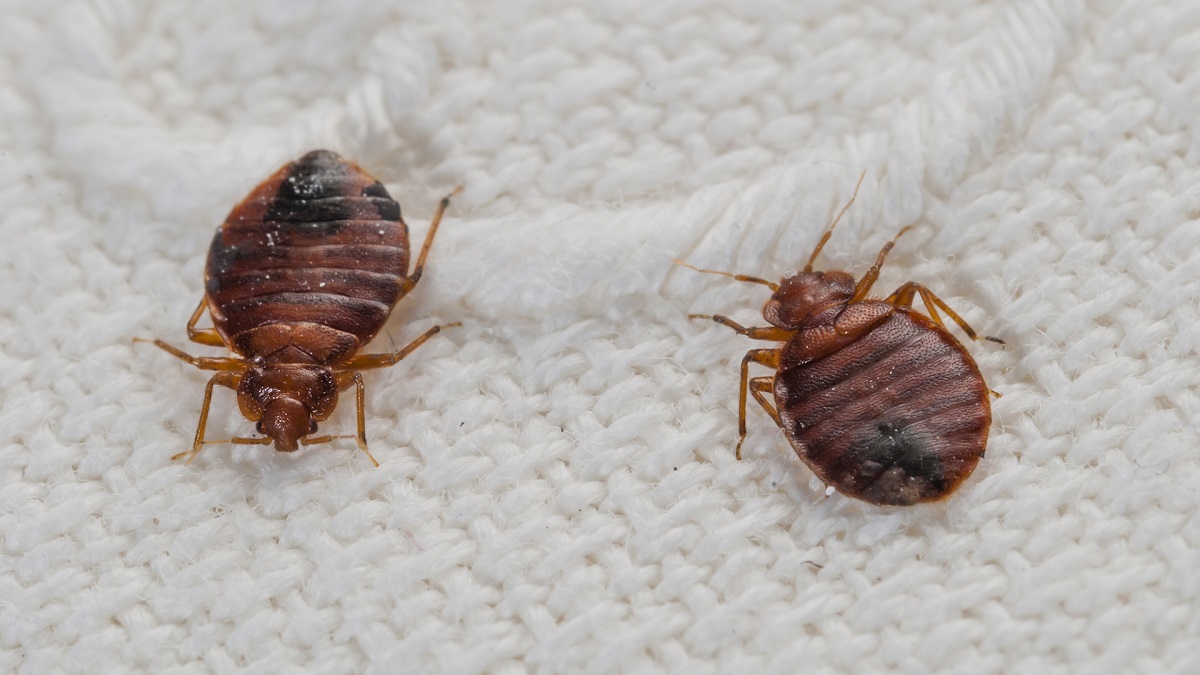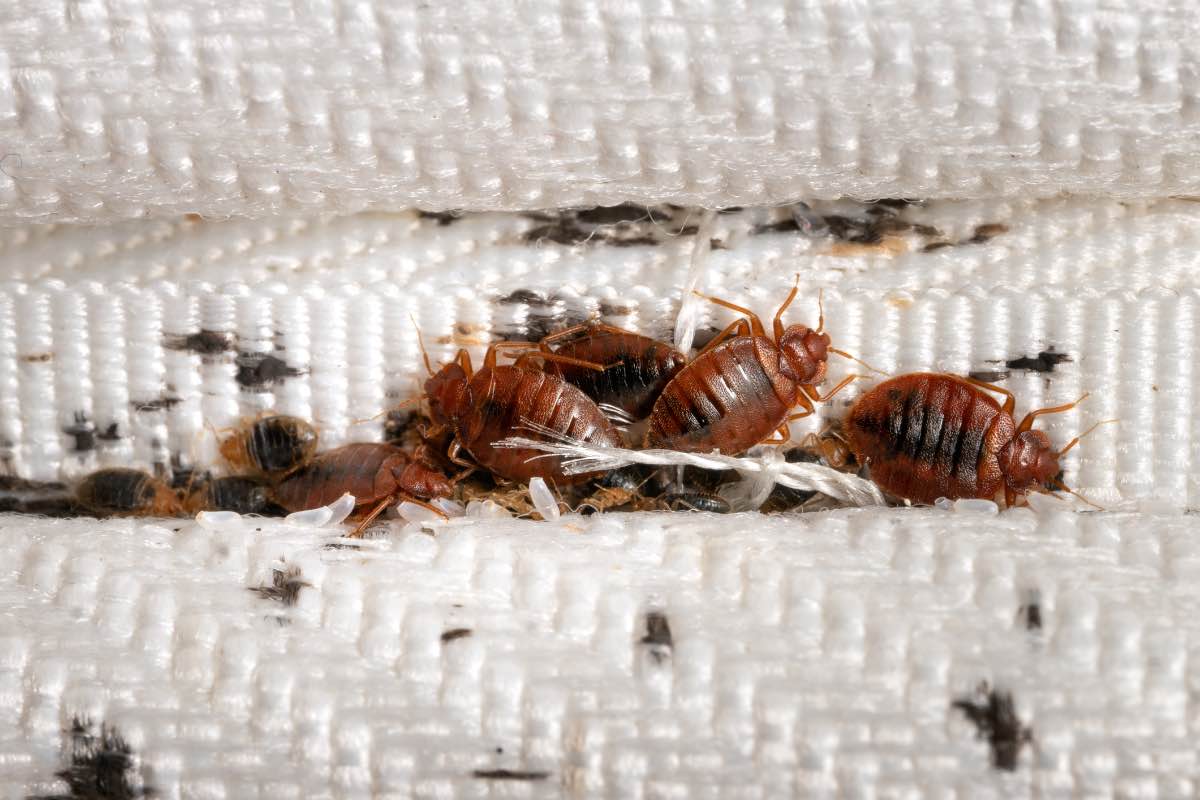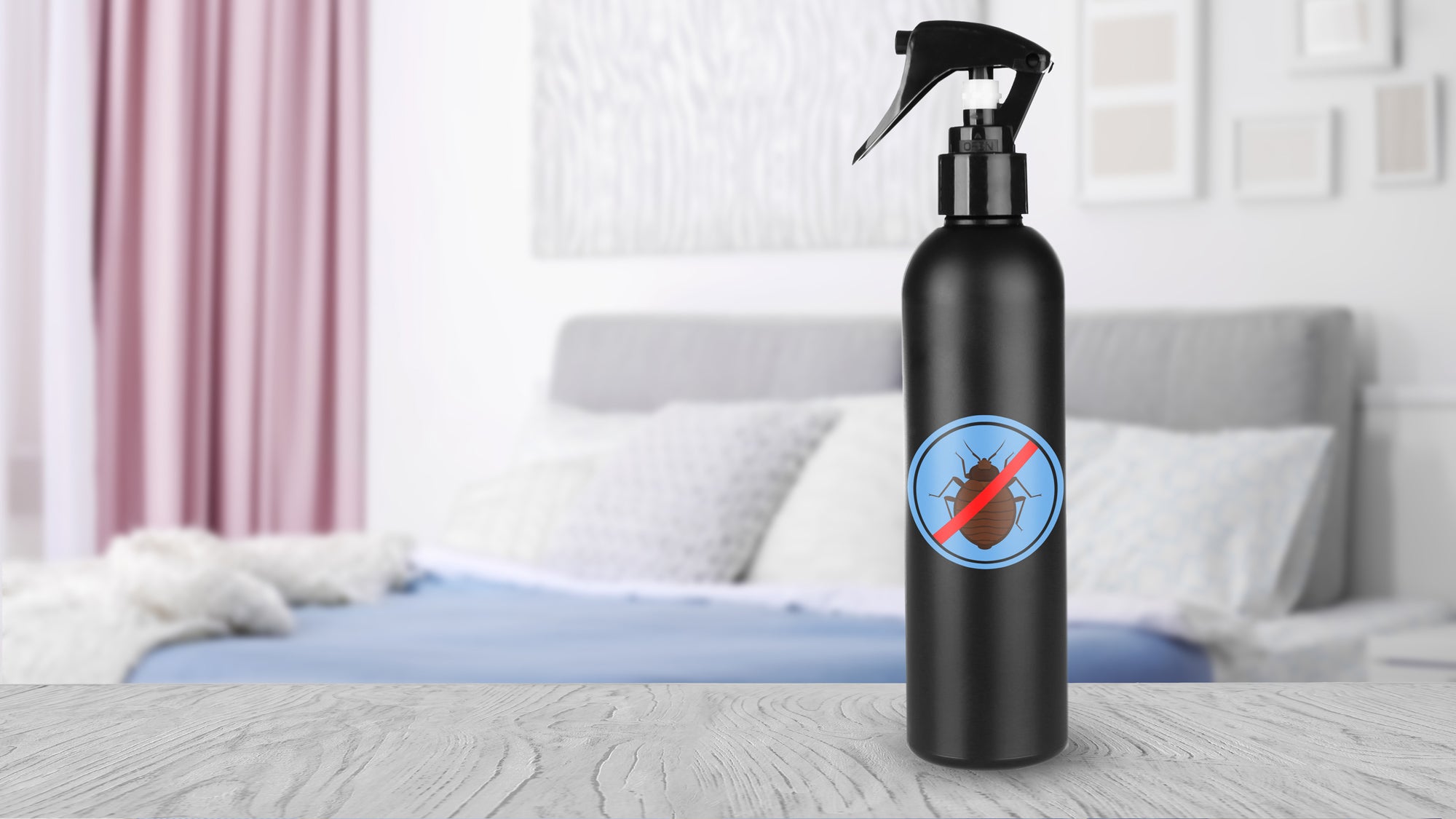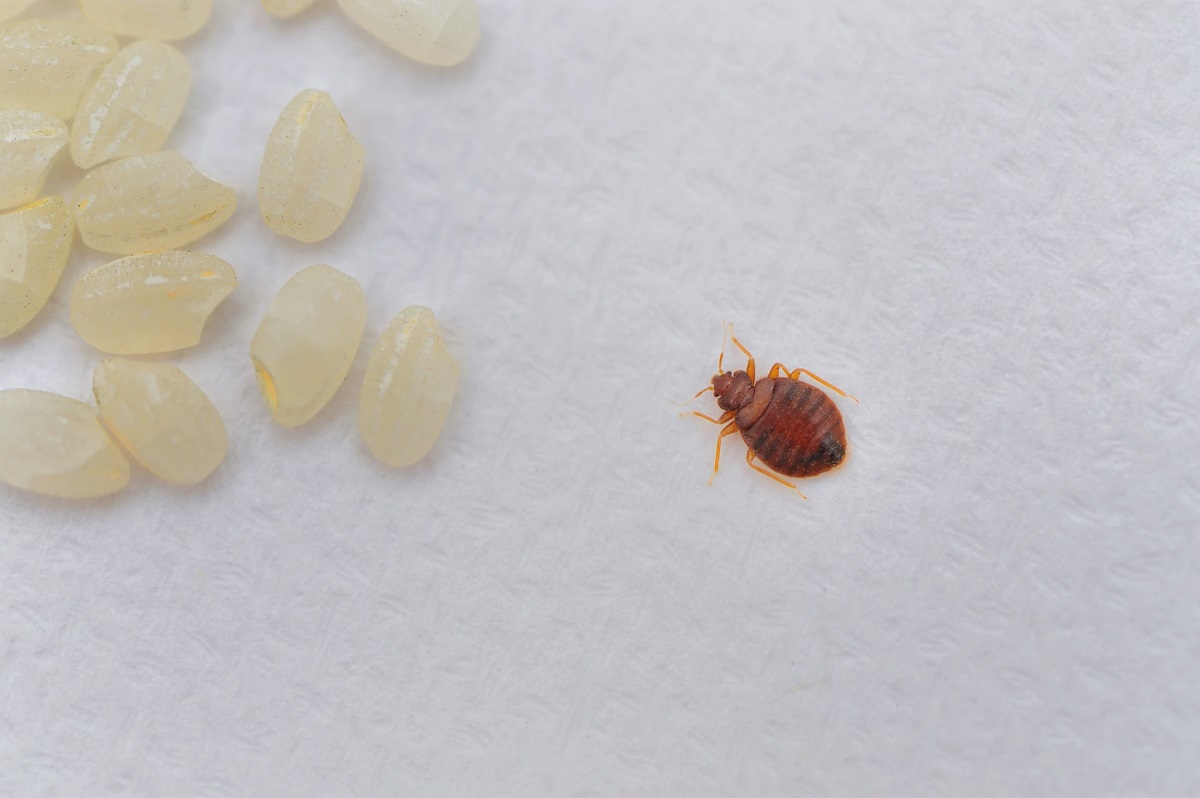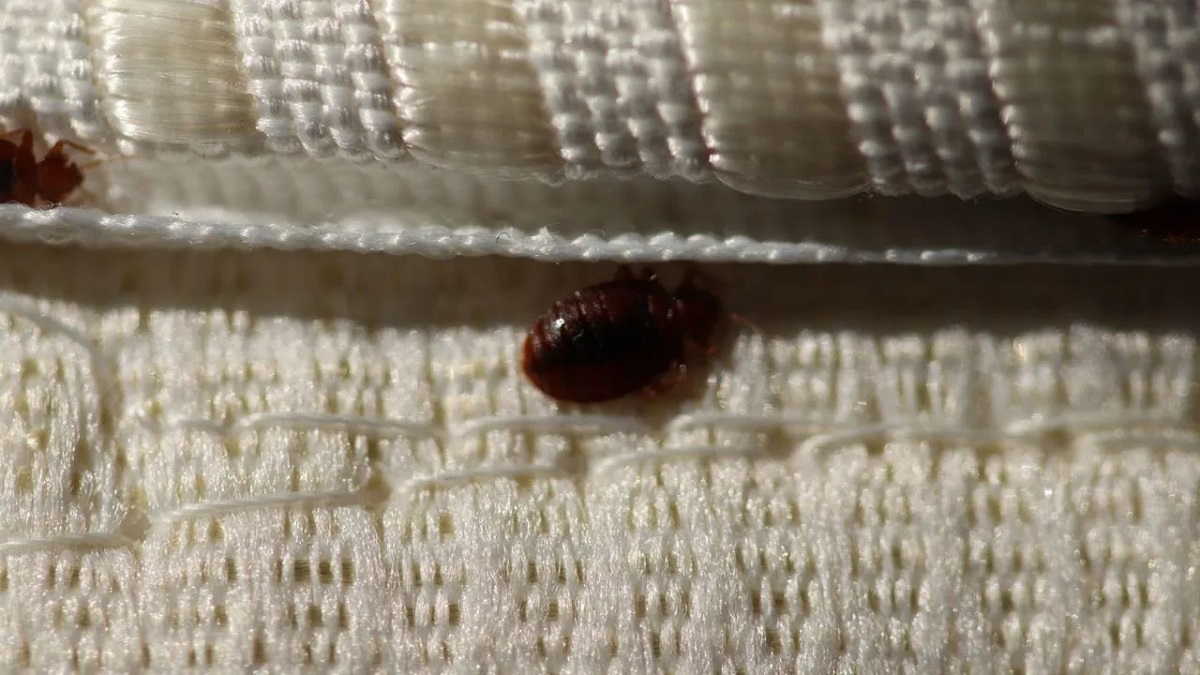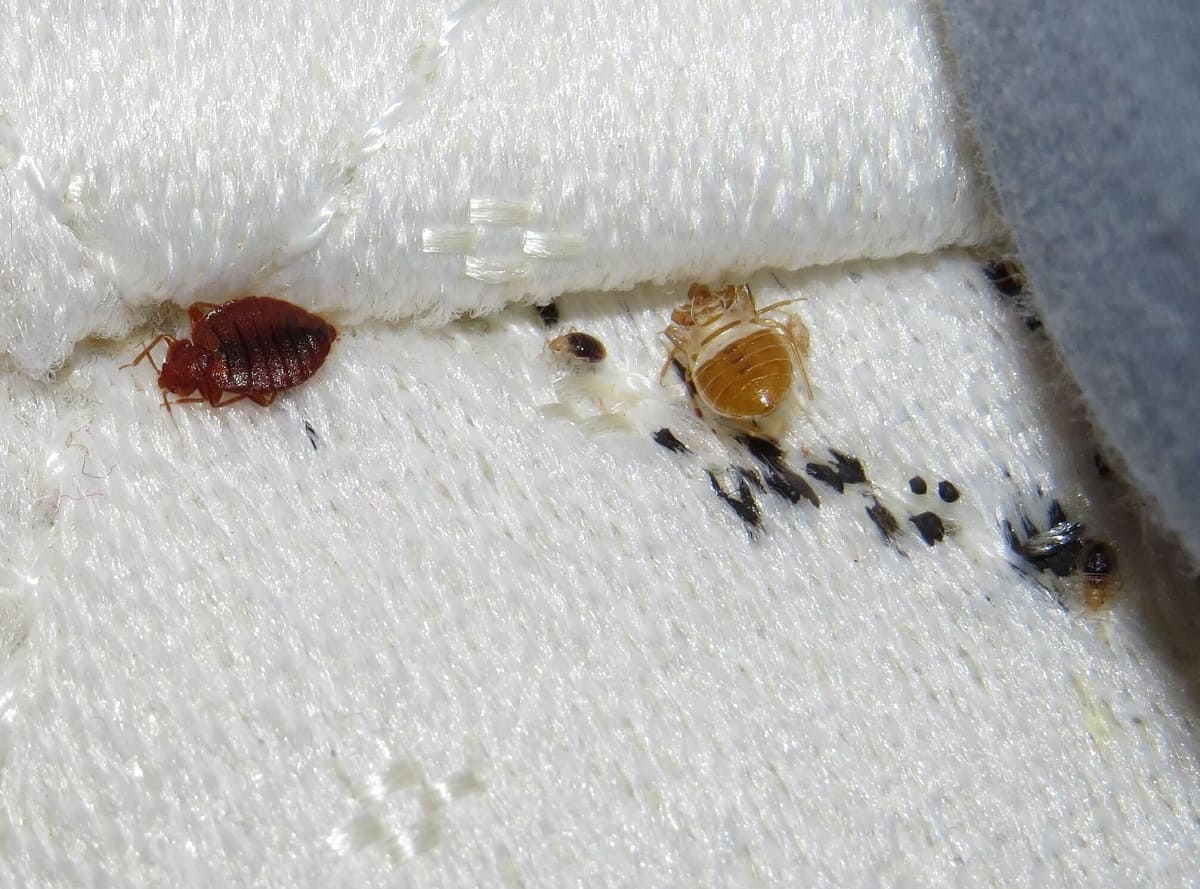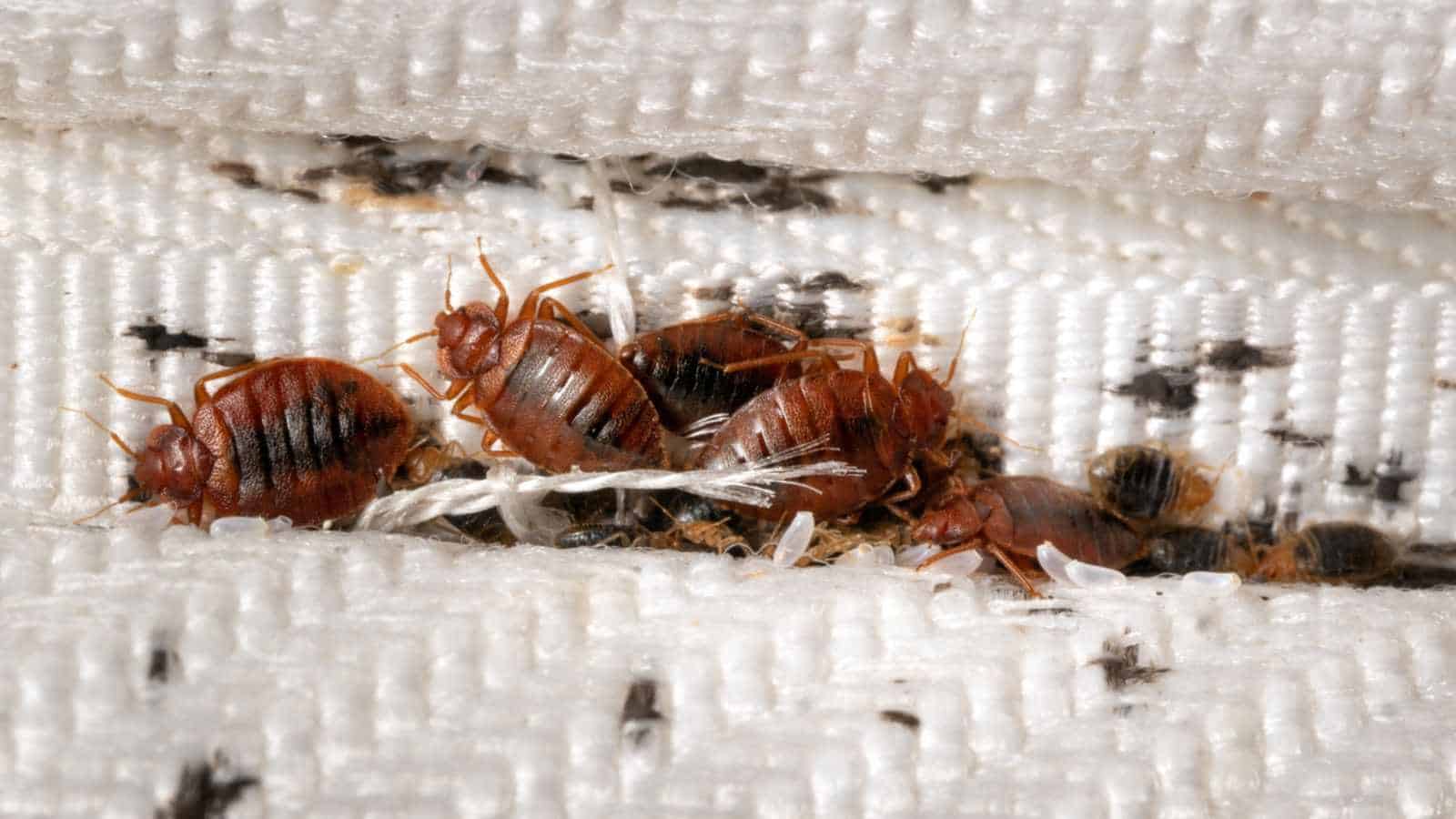Home>Furniture>Bedroom Furniture>What Helps Bed Bug Bites
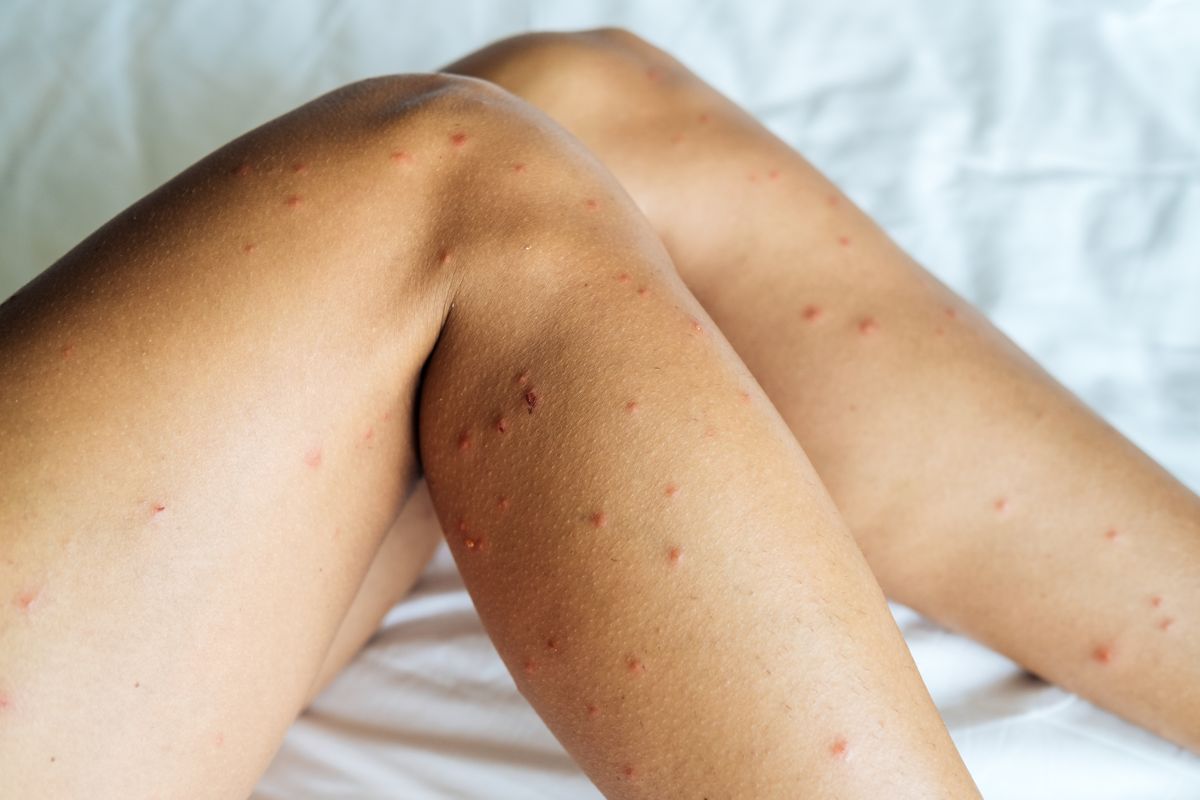

Bedroom Furniture
What Helps Bed Bug Bites
Modified: October 28, 2024
Looking for relief from bed bug bites? Discover the best remedies for soothing bed bug bites on our bedroom furniture blog.
(Many of the links in this article redirect to a specific reviewed product. Your purchase of these products through affiliate links helps to generate commission for Storables.com, at no extra cost. Learn more)
Introduction
Bed bug bites can be uncomfortable and bothersome. These tiny pests, known as Cimex lectularius, are nocturnal insects that feed on human blood while we sleep. Although they do not transmit diseases, their bites can cause itching, inflammation, and in some cases, allergic reactions.
In recent years, there has been an increase in bed bug infestations worldwide. These pests are skilled at hitching rides on luggage, clothing, and furniture, making it easy for them to spread from one place to another. Once they enter your home, they can hide in cracks, crevices, and mattresses, making it difficult to eradicate them completely.
Understanding bed bug bites and knowing how to treat and prevent them is essential for a comfortable and peaceful night’s sleep. In this article, we will explore the symptoms of bed bug bites and various remedies, including home treatments, over-the-counter options, and medical interventions.
So if you’ve been dealing with pesky bed bug bites or want to be prepared in case of an infestation, keep reading to learn more about what helps bed bug bites and how to alleviate their discomfort.
Key Takeaways:
- Don’t Let Bed Bug Bites Bug You
Understanding symptoms, home remedies, and OTC treatments can help alleviate discomfort. Prompt action and preventive measures are key to managing and preventing bed bug bites. - Take Control of Bed Bug Bites
Identify, treat, and prevent bed bug bites with home remedies, OTC treatments, and proactive measures. Stay informed and act promptly to enjoy a bed bug-free environment.
Read more: What Bed Bug Bites Look Like
Understanding Bed Bug Bites
Bed bug bites are typically small, red, and itchy. They often appear in groups or clusters, usually in exposed areas of the body such as the face, neck, arms, and legs. These bites are the result of the bed bug piercing the skin with its mouthparts and injecting saliva, which contains an anticoagulant and anesthetic.
Contrary to popular belief, you may not feel the actual bite as it happens due to the numbing effect of the bed bug’s saliva. The itching and redness usually become noticeable after a few hours or even days.
Bed bug bites are commonly mistaken for other insect bites or skin conditions, such as mosquito bites, flea bites, or allergic reactions. However, there are a few telltale signs that can help you identify them:
- Multiple bites in a linear or clustered pattern
- Small, raised bumps or welts on the skin
- Intense itching or a burning sensation
- Redness and inflammation around the bite area
- Occasional formation of blisters or hives
It’s important to keep in mind that not everyone reacts to bed bug bites in the same way. While some individuals may experience mild symptoms, others may develop more severe reactions or even allergies. If you suspect you have been bitten by bed bugs and are unsure about the cause, consult a healthcare professional or dermatologist for an accurate diagnosis.
Now that we have a better understanding of bed bug bites, let’s explore various treatments and remedies that can help alleviate their discomfort and promote healing.
Symptoms of Bed Bug Bites
Bed bug bites can vary in appearance and may not be immediately noticeable. It’s important to be aware of the common symptoms associated with these bites:
- Redness and Swelling: Bed bug bites often lead to redness and inflammation around the affected area. The skin may become swollen and slightly raised.
- Itching and Discomfort: One of the most common symptoms of bed bug bites is itching. It can range from mild to intense and may cause discomfort and difficulty sleeping.
- Rash or Blisters: In some cases, bed bug bites can lead to the development of a rash or small blisters. This is more common in individuals with sensitive skin or those who scratch the bites excessively.
- Clusters or Lines: Bed bug bites often appear in clusters or straight lines on the skin. This is because the bugs tend to bite multiple times in a localized area while feeding.
- Allergic Reactions: Although rare, some individuals may have an allergic reaction to bed bug bites. This can manifest as severe itching, hives, difficulty breathing, and even anaphylaxis in extreme cases. If you experience any of these symptoms, seek medical attention immediately.
It is important to note that not everyone reacts to bed bug bites in the same way. Some people may have no reaction at all, while others may experience more pronounced symptoms. Additionally, the timing of the symptoms can vary from person to person. Some may notice immediate discomfort, while others may not experience any symptoms until hours or days after being bitten.
If you suspect that you have been bitten by bed bugs, it is crucial to identify and address the infestation promptly. Proper treatment and preventive measures can help alleviate symptoms and prevent further bites in the future.
Home Remedies for Bed Bug Bites
While bed bug bites can be irritating, there are several home remedies that can help alleviate the itching and promote healing. These remedies are often easily accessible and can provide temporary relief:
- Wash the Bites: Start by cleaning the affected area with mild soap and water. This helps remove any irritants and reduces the risk of infection.
- Cool Compress: Applying a cold compress, such as a clean washcloth soaked in cold water, can help reduce inflammation and relieve itching. Place the compress on the bites for 10-15 minutes at a time.
- Aloe Vera Gel: Known for its soothing properties, applying aloe vera gel directly to the bed bug bites can help reduce inflammation and itching. Look for 100% pure aloe vera gel for best results.
- Calamine Lotion: Calamine lotion has been a popular remedy for insect bites and skin irritations for years. It can help relieve itchiness and provide a cooling sensation on the skin.
- Baking Soda Paste: Mixing baking soda with a small amount of water to create a paste can help soothe bed bug bites. Apply the paste to the affected area and leave it on for about 10-15 minutes before rinsing off with water.
- Oatmeal Bath: Adding colloidal oatmeal to a lukewarm bath can provide relief for itchy skin. Soak in the oatmeal bath for 15-20 minutes to soothe the bed bug bites.
- Essential Oils: Some essential oils, such as lavender, tea tree, and peppermint, have natural anti-inflammatory and soothing properties. Dilute a few drops of the essential oil in a carrier oil, such as coconut or almond oil, and apply it to the bites.
While these home remedies can provide relief, it’s important to note that they may not eliminate the infestation itself. To ensure complete eradication of bed bugs, it is crucial to address the source of the problem by implementing proper cleaning and pest control measures.
If your symptoms worsen or persist despite home remedies, or if you experience signs of an allergic reaction, it’s advisable to seek medical attention for further evaluation and treatment.
To relieve itching and discomfort from bed bug bites, apply a cold compress or anti-itch cream to the affected area. This can help reduce inflammation and provide temporary relief.
Over-the-Counter Treatments for Bed Bug Bites
In addition to home remedies, there are also over-the-counter (OTC) treatments available that can help alleviate the discomfort caused by bed bug bites. These products are designed to reduce itching, inflammation, and promote healing. Here are a few common OTC treatments for bed bug bites:
- Antihistamine Creams or Lotions: These products contain antihistamines, which can help reduce itching and inflammation. Apply the cream or lotion directly to the bed bug bites according to the package instructions.
- Hydrocortisone Cream: Hydrocortisone cream is a mild steroid cream that can help relieve itching and inflammation associated with bed bug bites. Use it as directed on the affected area.
- Topical Analgesics: Some OTC creams or ointments contain ingredients like benzocaine or lidocaine, which provide temporary pain relief and can help numb the itching sensation on the skin.
- Antiseptic Creams: Applying antiseptic creams or ointments can help prevent infection if you accidentally scratch the bed bug bites. Look for products containing ingredients like benzalkonium chloride or chlorhexidine.
- Antibiotic Ointments: If you develop blisters or open sores due to scratching, applying an antibiotic ointment can help prevent infection. Consult a pharmacist or healthcare professional to find an appropriate one for your situation.
When using OTC treatments, it’s essential to follow the package instructions and use them as directed. If there are any concerns or if your symptoms worsen or persist, it’s recommended to consult with a healthcare professional for further evaluation and advice.
Keep in mind that OTC treatments are meant to provide temporary relief from the symptoms of bed bug bites, but they do not address the underlying bed bug infestation. Proper pest control measures and thorough cleaning are necessary to eliminate the infestation and prevent future bites.
Read more: How To Tell If You Have Bed Bug Bites
Medical Treatments for Bed Bug Bites
In most cases, bed bug bites can be treated at home with the aforementioned remedies and over-the-counter treatments. However, in certain situations, medical interventions may be necessary to manage severe symptoms or complications. If you experience any of the following, it is advisable to seek medical attention:
- Allergic Reactions: If you have a known allergy to bed bug bites or develop severe symptoms such as difficulty breathing, swelling of the face, lips, or tongue, or a rash that spreads rapidly, seek immediate medical care. These signs may indicate a severe allergic reaction that requires swift medical intervention.
- Secondary Infections: Excessive scratching of bed bug bites can lead to open sores or blisters, increasing the risk of infection. If you notice signs of infection such as increased pain, redness, warmth, pus, or fever, it is important to consult a healthcare professional. They may prescribe antibiotics or other appropriate treatments to prevent or address any infection.
- Chronic Itching: If you experience persistent itching that does not respond to home remedies or over-the-counter treatments, a dermatologist may be able to provide additional treatment options. They may prescribe stronger topical creams or recommend oral medications to manage the itching and help break the itch-scratch cycle.
- Scarring or Hyperpigmentation: In some cases, bed bug bites can leave behind scars or darker pigmentation on the skin. If you are concerned about the appearance of these marks or they are causing distress, consult a dermatologist who may suggest treatments such as laser therapy, chemical peels, or topical creams to help reduce their visibility.
Remember, medical treatments for bed bug bites are usually reserved for rare cases with severe symptoms or complications. Most bed bug bites can be managed with home remedies and over-the-counter treatments. However, if you have any concerns or if your symptoms are not improving, it is always best to consult with a healthcare professional for accurate diagnosis and appropriate treatment.
Prevention of Bed Bug Bites
Preventing bed bug bites starts with preventing or controlling bed bug infestations in your environment. Here are some measures you can take to reduce the risk of bed bug bites:
- Inspect Hotel Rooms: When traveling, inspect your hotel room for any signs of bed bugs before settling in. Check the mattress, headboard, and furniture for live bugs, fecal stains, or shed skins. If you notice any signs, request a room change or find alternative accommodations.
- Protect Your Luggage: When staying in hotels or other places with a potential for bed bug infestations, keep your luggage elevated and away from the bed and furniture. Use luggage racks or place your bags in the bathroom until you can confirm the room is bed bug-free.
- Be Cautious with Secondhand Furniture: If you are purchasing used furniture, thoroughly inspect it for any signs of bed bugs. Pay particular attention to seams, cracks, and crevices. Consider treating the furniture with heat or insecticides before bringing it into your home.
- Regularly Inspect and Clean Your Home: Conduct routine inspections of your living space, paying attention to areas where bed bugs can hide, such as beds, furniture, baseboards, and cracks in walls. Vacuum regularly, dispose of the vacuum bag in a sealed container, and wash your bedding in hot water regularly.
- Encase Mattresses and Pillows: Use mattress and pillow encasements specifically designed to prevent bed bugs from infesting your sleeping area. These encasements are typically made of tightly woven fabric and have a zipper closure.
- Reduce Clutter: Bed bugs can hide in cluttered areas, making it harder to locate and eliminate them. Declutter your space to minimize hiding spots for these pests.
- Use Bed Bug-Proof Travel Accessories: When traveling, consider using bed bug-proof luggage liners and clothing bags to protect your belongings from potential infestations.
- Seek Professional Help: If you suspect or confirm a bed bug infestation in your home, it is recommended to seek professional pest control services. They have the expertise and tools to effectively eliminate bed bugs and help prevent future infestations.
By being proactive and implementing these preventative measures, you can significantly reduce the chances of encountering bed bugs and their bites. Remember, early detection and immediate action are key to preventing a full-blown infestation and minimizing the risk of bed bug bites.
Conclusion
Bed bug bites can be itchy and uncomfortable, but with proper knowledge and precautions, you can effectively manage and prevent them. Understanding the symptoms of bed bug bites and differentiating them from other insect bites or skin conditions is crucial to proper treatment.
Home remedies such as washing the bites, using a cold compress, applying aloe vera gel or calamine lotion, and taking oatmeal baths, can provide temporary relief from itching and inflammation. Over-the-counter treatments like antihistamine creams, hydrocortisone cream, and topical analgesics can also help alleviate discomfort.
In severe cases, medical treatments may be necessary, especially for individuals experiencing allergic reactions, secondary infections, chronic itching, or scarring. It’s important to consult with a healthcare professional in such situations to receive appropriate care.
Prevention is key when it comes to bed bug bites. Inspecting hotel rooms, protecting luggage, being cautious with secondhand furniture, regularly cleaning and inspecting your home, and using bed bug-proof accessories can help minimize the risk of encountering these pests.
Remember, addressing a bed bug infestation promptly is crucial to prevent further bites and discomfort. Pest control professionals can provide effective solutions for eradicating bed bugs and preventing future infestations.
By staying informed, implementing preventive measures, and taking prompt action, you can reduce the chances of experiencing bed bug bites and enjoy a peaceful and bed bug-free environment.
Frequently Asked Questions about What Helps Bed Bug Bites
Was this page helpful?
At Storables.com, we guarantee accurate and reliable information. Our content, validated by Expert Board Contributors, is crafted following stringent Editorial Policies. We're committed to providing you with well-researched, expert-backed insights for all your informational needs.
